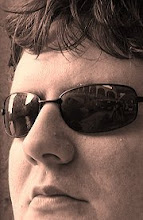I'm undergoing GTA (graduate teaching assistant) training at Virginia Tech, and after the first two days--4 sessions out of 6--my opinion is mixed. The presentations and workshops are well-delivered, entertaining, etc. Top-notch stuff. But they're sorely lacking in two important aspects.
One, presentations are mostly frontal-delivery, one-(wo)man shows with little interaction and no hands-on learning... which is pretty bad, since they're supposed to be shaping teachers. Two, the content of this TA workshop is aimed at people who have never been on the deep end of the classroom before. The first issue is endemic to academia and I won't discuss it. The latter is more of interest to me.
For the last two years of college at Wartburg I've served as a Supplemental Instructor for introductory courses in philosophy. The duties of a SI are quite similar to a TA's, minus the grading (though some SIs do that too). SIs lead discussion, help out students with difficult concepts and putting the material in perspective, assist the professor with scheduling and class communication, and re-lecture as needed. Heck, I've even taught two plenary sessions when the professor was sick. In general, SIs use their hybrid more-than-student, less-than-faculty post to serve as a bridge between faculty and students. The duties and image of TAs are much closer to the faculty side than to the student side, but from a practical standpoint their tasks are nearly identical to SIs. As a result, 95% of the material discussed in these GTA workshops was simply old stuff for me, with the few local differences peculiar to VT accounting for the rest.
I'm a (wannabe-) philosopher, so I name things and affix blame. For one, I blame Virginia Tech for not differentiating between those students with previous SI experience. SI is a national program and more than a few fellow GTAs I've met these days have been SI leaders. They, too, were more or less peeved, depending on the level of SI training they had received at their undergraduate insititution. There should have been some sort of pre-screening based on previous SI-ship experience or advanced sessions for former SIs--or even involvement of former SIs in training non-SI new TAs, just like SI peer mentors carried out a significant portion of SI training at Wartburg. You get my drift. There were countless options, but I feel that the human resources weren't properly utilized. Pity.
More importantly, I praise Wartburg for preparing me so well. The training I've received from (among others) my SI supervisors Jeff Beck and Michael Gleason and my SI peer mentor Lia Kampman was amazingly attuned with VT's declared expectations for their TAs, at least based on these workshops. Now perhaps in a couple months I'll find out I'm an awful TA, and if so I can blame both Wartburg and VT for all-around insufficient preparation--and/or myself, of course, for being a poor learner and not having done more.
Regardless, my point is that I'm very glad that the knowledge and experience I've accumulated in the last two years as a SI, easily the most rewarding part of my college life, is turning out to have been sound, poignant, and resting on solid pedagogical foundations. Whether or not I'm massively deluded, I'll find out. But for now it feels good.
(end of post)





